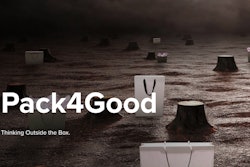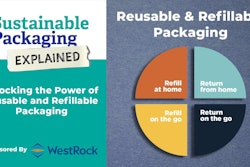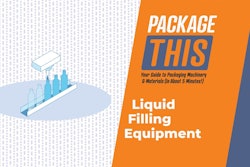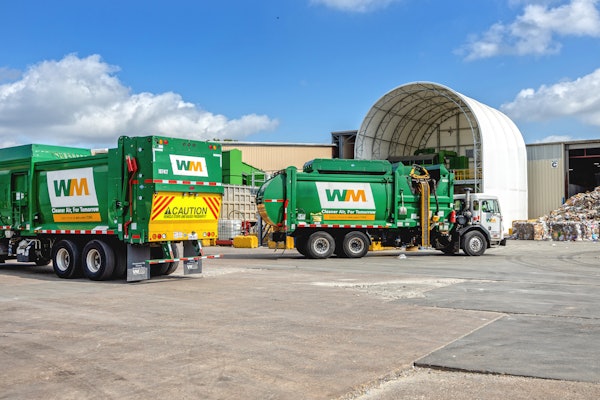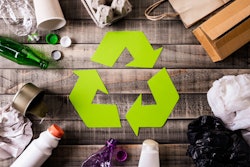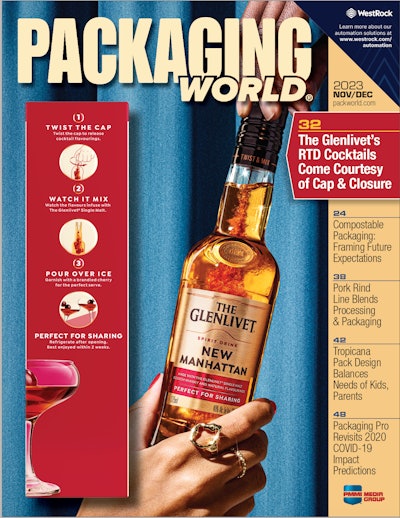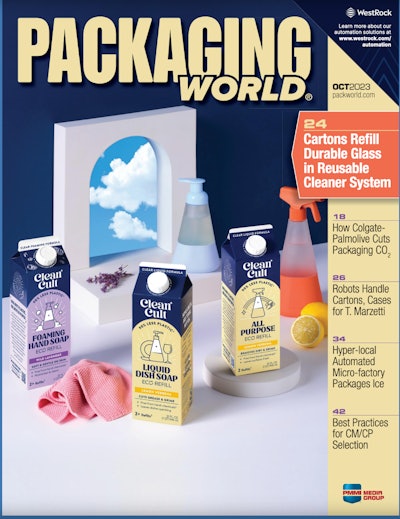
The development of biodegradable, compostable packaging, and novel bio-based substitutes to plastic are continuing unabated. Nevertheless, the absence of widely available industrial composting infrastructures in many markets significantly hinders widespread adoption.
Learn more about ThePackHub's Innovation Zone here.
 Frito-Lay compostable chip bags were available at food vendors at the 2023 Coachella Music Festival.ThePackHub
Frito-Lay compostable chip bags were available at food vendors at the 2023 Coachella Music Festival.ThePackHub
Frito-Lay has teamed up with flexible packaging specialists Bryce Corporation to develop compostable packaging for five of its most popular products: Lay’s, Cheetos, Doritos, Tostitos, and Ruffles. This initiative was launched at the 2023 Coachella Music Festival, where the packaging was available from all food vendors. The packaging, made from plant-based materials like cornstarch and sugarcane, can decompose within 180 days in a commercial composting facility, according to John Meehan Jr., Product Development Manager at Bryce Corporation. The goal of the project, Meehan explained at the Global Pouch Forum, is to create functional packaging that consumers can easily recycle or compost, without compromising product quality. Frito-Lay spokesperson, Melissa Sklar, expressed the company’s excitement about providing fans with the compostable packaging at Coachella, viewing it as a significant step towards sustainability and a continuation of the company’s efforts to minimize its environmental impact.
 | Read this story on Frito-Lay's new facility to enable on-site testing and analysis of compostable packaging materials. |
 Lumene partnered with UPM and SABIC to create a moisturizer jar and label made with bio-based materials.ThePackHub
Lumene partnered with UPM and SABIC to create a moisturizer jar and label made with bio-based materials.ThePackHub
Finnish beauty brand Lumene has collaborated with UPM and Saudi-based chemical company SABIC to introduce new moisturizer jars made from bio-based materials and wood-based labels. The company is launching a jar, topped with self-adhesive labels that are made of BioVerno naphtha, a wood-based material developed by UPM in Finland. SABIC processes the bio-based material into certified renewable polypropylene before converting it into various recyclable cosmetics containers and product labels. The labels are printed on UPM’s Raflatac Forest Film, which is claimed to be the world’s first film label material made with wood-based biomaterials. Lumene opted to use the renewable bio-based raw material in order to reduce its packaging carbon footprint. It is reported that the materials will reduce the company’s fossil-based plastics usage by more than 60 metric tons per year and cut its carbon footprint by 1.5 million jars every year.
 | Read this story on Lumene's skincare bottle that uses 50% chemically recycled content. |
 The Zerna Café partnered with ad agency Synthesis to replace the plastic packaging of its dried fruit with dried squash.ThePackHub
The Zerna Café partnered with ad agency Synthesis to replace the plastic packaging of its dried fruit with dried squash.ThePackHub
The Zerna café in Uzbekistan has reportedly created the first packaging made with lagenaria, a vegetable belonging to the pumpkin family. The idea behind the innovation was to combat the problem of excessive plastic consumption in packaging by using lagenaria as packagIng to preserve products, especially spices and dried fruit. In collaboration with the advertising agency Synthesis, it decided to replace the plastic packaging of its dried fruit with dried lagenaria, which has a decomposition time of about one year, compared to a plastic bag, which can take between 100 and 400 years to decompose.This vegetable has another benefit: It is highly resilient, making it ideal for transport. Finally, it adapts to environmental conditions without major problems, and is not affected by the presence of humidity and sudden changes in light.
Learn more about ThePackHub's Innovation Zone here.
